Ever paused to ponder what truly fuels those heartwarming moments of empathy? You know, those instances where understanding washes over you, and you find yourself connecting deeply with another’s feelings? It’s like peering into a mirror of emotions, reflecting the essence of our humanity.
Within this intricate connection of emotional effectiveness lies a particular part that dissolves empathy into our being. So, let’s embark on a journey to unravel this mystery and discover the emotional intelligence trait that nurtures empathy.
Table of Contents
Unlocking the Secrets of Emotional Intelligence
Imagine your emotions as a symphony, each note playing a vital role in the melody of your life.
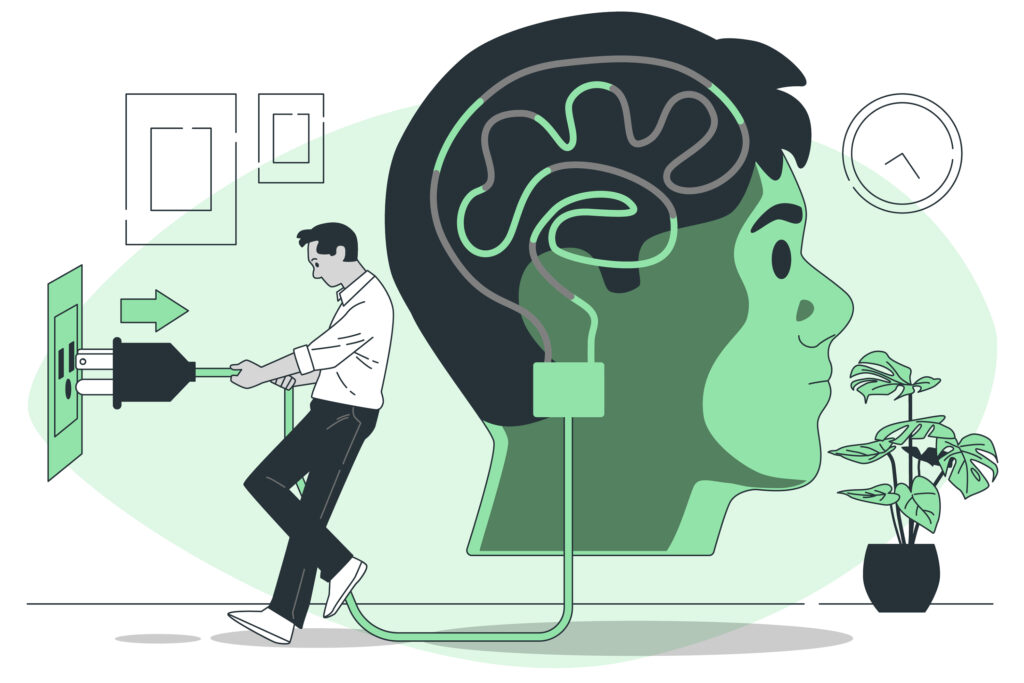
Emotional intelligence is like the conductor, guiding this symphony with finesse and skill. It’s about knowing yourself deeply, understanding your feelings, and having the ability to navigate the complex landscape of human emotions.
Self-awareness is the first chair violin, tuning into your innermost thoughts and desires. Self-regulation acts as the steady beat of the drum, keeping your emotions in check even in the face of adversity.
Social awareness is the harmony that connects you to others, allowing you to empathize and understand their emotions.
And relationship management is the crescendo, orchestrating your interactions for mutual benefit and harmony. Together, these elements form the foundation of emotional intelligence, empowering you to lead a more fulfilling and meaningful life.
Understanding Empathy
Empathy is the heartbeat of humanity, the invisible thread that binds us together in our shared human experience. It’s the ability to step into someone else’s shoes, to feel what they feel, and to see the world through their eyes.
Picture a friend pouring their heart out to you about a recent breakup. As they share their pain and vulnerability, you feel a tug at your own heartstrings, a deep resonance with their emotions. That’s empathy in action—a bridge that connects us across the chasm of our differences.
Think about a time when you were struggling, and someone reached out a helping hand or offered a comforting word. At that moment, their empathy was like a beacon of light, illuminating the darkness and reminding you that you’re not alone.
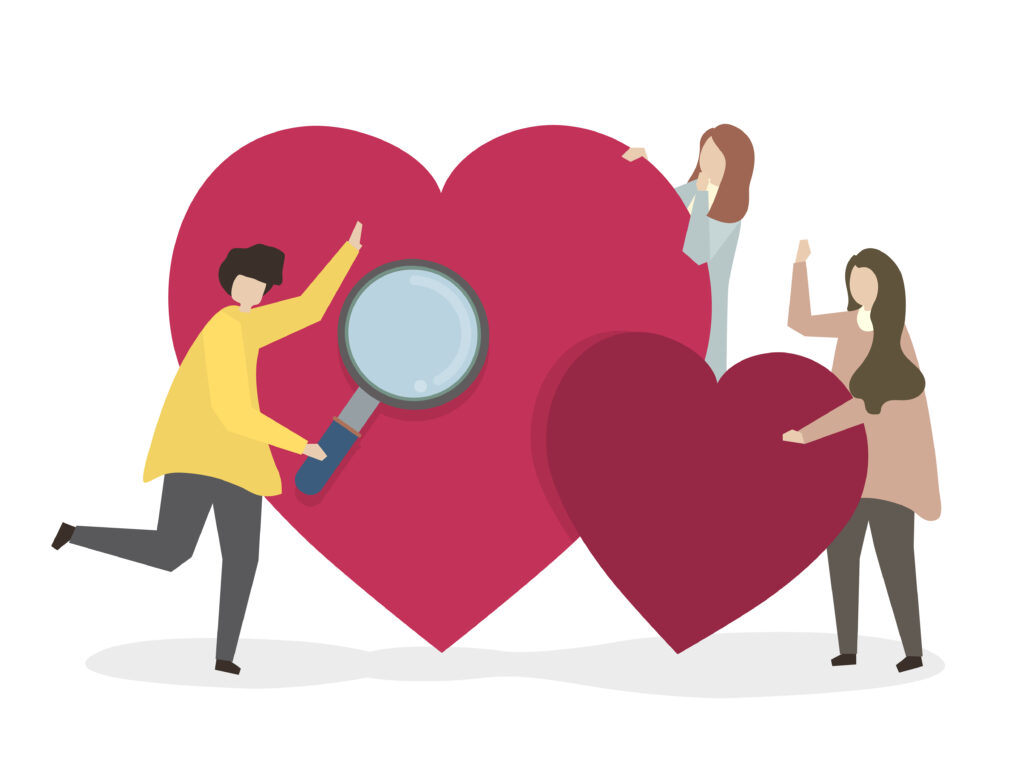
It’s the coworker who takes the time to listen when you’re feeling overwhelmed, the stranger who offers a smile on a rainy day, the parent who soothes a crying child with a gentle hug. These small acts of empathy may seem insignificant, but they have the power to transform lives and cultivate compassion in the world.
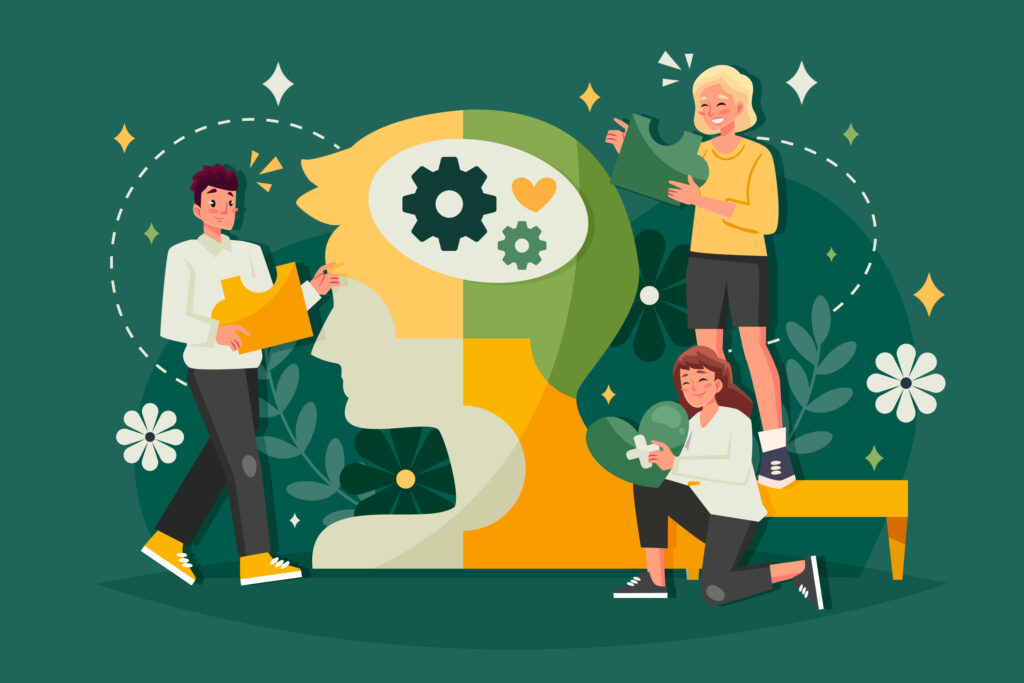
Empathy isn’t just about feeling sorry for someone or offering sympathy from afar. It involves genuinely comprehending and forming profound connections with others. It requires us to set aside our own judgments and biases, to listen with an open heart, and to validate the experiences of those around us.
In a society that often values individualism and self-interest, empathy serves as a powerful reminder of our interconnectedness and our capacity to care for one another. As we navigate the ups and downs of life, let’s remember the essence of empathy—the simple act of being there for each other, of holding space for someone’s pain, and of celebrating their joys. By cultivating empathy in our own lives, we not only enrich our relationships but also contribute to a kinder, more compassionate world for all.
Reviewing Existing Research

| Study Title | Findings |
|---|---|
| “The Role of Emotional Intelligence in Empathy” | Emotional intelligence positively correlates with empathy, indicating a strong relationship between the two constructs. |
| “Exploring the Link Between Emotional Intelligence and Empathetic Behavior” | Higher levels of emotional intelligence are associated with greater empathetic behavior, suggesting that emotional intelligence plays a significant role in fostering empathy. |
| “A Meta-Analysis of Emotional Intelligence and Empathy” | Meta-analysis findings reveal a moderate to strong positive correlation between emotional intelligence and empathy across various studies, supporting the notion that emotional intelligence contributes to empathetic abilities. |
| “Longitudinal Study on Emotional Intelligence and Empathy Development” | Longitudinal analysis demonstrates that individuals who exhibit higher emotional intelligence during childhood tend to demonstrate greater levels of empathy in adulthood, highlighting the developmental trajectory of these constructs over time. |
| “Cross-Cultural Examination of Emotional Intelligence and Empathy” | Cross-cultural research suggests that while the relationship between emotional intelligence and empathy remains robust across different cultural contexts, there may be variations in the strength of this relationship depending on cultural norms and values. |
| “Neuroscientific Insights into Emotional Intelligence and Empathy” | Neuroimaging studies provide evidence of overlapping neural circuits involved in emotional intelligence and empathy, suggesting a biological basis for the relationship between these constructs. |
| “Educational Interventions to Enhance Emotional Intelligence and Empathy” | Interventions targeting emotional intelligence skills result in improvements in empathetic abilities, underscoring the potential for educational programs to promote empathy through the cultivation of emotional intelligence. |
| “Occupational Outcomes of Emotional Intelligence and Empathy” | Individuals with higher emotional intelligence and empathy tend to exhibit stronger leadership skills, better communication abilities, and enhanced interpersonal relationships in the workplace, highlighting the importance of these traits for professional success. |
As we dissect each emotional intelligence trait, we begin to unravel the enigma surrounding empathy.
While self-awareness lays the groundwork for understanding our own emotions, it is social awareness that truly opens the door to empathetic connection. By attuning ourselves to the emotions of others, we cultivate a deep sense of empathy that transcends boundaries and fosters meaningful relationships. It’s akin to tuning our hearts to the same frequency, allowing us to resonate with the emotions of those around us.

Unveiling the Trait of Empathy Which Tends to be Empathetic
Now, let’s dive deeper into the heart of empathy, where the magic truly happens. Picture empathy as a warm embrace, wrapping us in understanding and compassion. It’s the secret sauce that fuels our connections with others, bridging the gap between hearts and minds.
As we peel back the layers of this remarkable trait, we uncover a treasure trove of insights into what it means to be truly human. Empathy isn’t just a fleeting emotion; it’s a way of being—an innate ability to attune ourselves to the joys and sorrows of those around us.
It’s the gentle touch of a friend’s hand when we’re feeling down, the shared laughter that binds us together, and the silent tears shed in solidarity with another’s pain.

But what exactly is the key to unlocking this empathetic superpower? Drumroll, please! It’s none other than social awareness—the unsung hero of emotional intelligence. Social awareness is like a compass, guiding us toward a deeper understanding of the human experience. It’s the ability to read between the lines, to pick up on subtle cues, and to intuitively grasp the emotions of those around us.
Think of social awareness as a finely tuned antenna, picking up on the emotional frequencies that permeate our interactions. It’s the ability to sense when someone is feeling overwhelmed, to offer a kind word or a listening ear without being asked. It’s the willingness to step outside of ourselves and truly see the world through another’s eyes.
But here’s the beauty of it all: social awareness isn’t just a static trait that we’re born with—it’s something we can cultivate and nurture over time. By honing our observation skills, practicing active listening, and seeking to understand rather than judge, we can deepen our capacity for empathy and enrich our relationships in the process.

So, let’s raise a toast to social awareness—the unsung hero of empathy. May we cultivate this trait with care and compassion, allowing it to guide us toward deeper connections, richer experiences, and a world where empathy reigns supreme. After all, it’s in our moments of genuine connection that we truly come alive, embracing the full spectrum of human emotion with open hearts and open minds.
So, you’ve delved into the world of emotional intelligence and discovered the powerful role that empathy plays in our lives. But how can you apply this newfound understanding to your everyday interactions? Well, here are a couple of practical tips to get you started.
Firstly, practice active listening. Don’t just wait for your chance to talk; genuinely tune in to the other person’s words. Pay attention to their tone of voice, their body language, and the emotions behind their words. By showing genuine interest and empathy, you’ll create a safe space for them to share their thoughts and feelings.
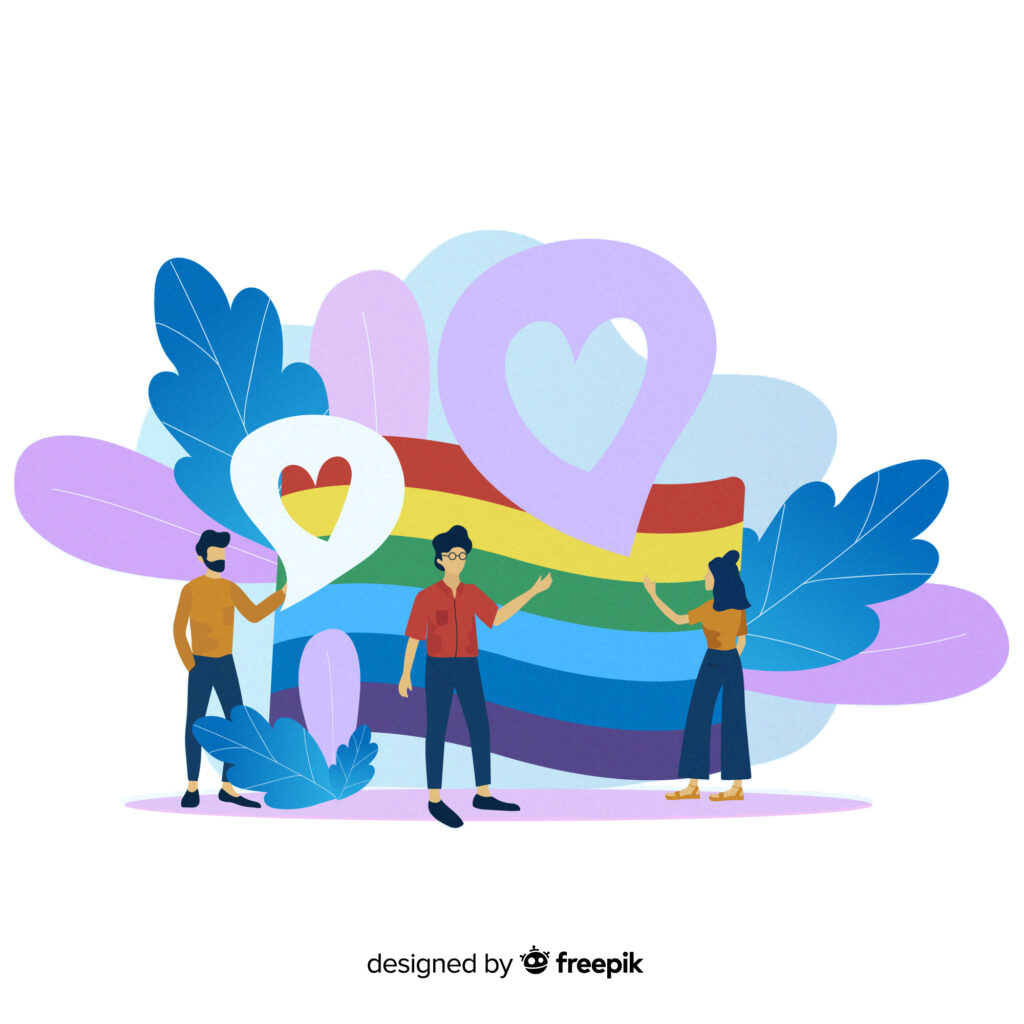
Secondly, put yourself in other people’s shoes. Before jumping to conclusions or passing judgment, take a moment to consider things from their perspective. Ask yourself, “How would I feel if I were in their situation?”.
Engaging in this small act of empathy has the potential to strengthen your bonds with others and cultivate a kinder perspective on life. So, go ahead and sprinkle a little empathy into your daily interactions—you’ll be amazed at the positive impact it can have!
Conclusion
As we come to the end of our journey through the intricate landscape of emotional intelligence and empathy, let’s remember this: compassion isn’t just a trait we possess—it’s a choice we make every day. So, I challenge you to take what you’ve learned here and put it into action. Practice active listening, put yourself in others’ shoes, and let empathy be your guide in all your interactions.
Together, let’s create a ripple effect of kindness and understanding that spreads far and wide, touching the lives of everyone we meet. Because in a world that can often feel divided and disconnected, empathy is the glue that holds us together. So, let’s be the change we wish to see, one compassionate act at a time. Are you ready to join me on this journey toward a more empathetic world? Together, we can make a difference.
Read This If you Wonder what Empathy would do in a Romantic Relationship
FAQs
When Emotional Intelligence Goes Wrong?
Okay, check this out: some researchers have been digging into what they’re calling “the dark side” of emotional intelligence (EI). And what they’ve found is pretty unsettling. It turns out there’s a connection between being good at understanding people’s emotions and, well, using them. Yeah, it’s like having this superpower of knowing how people tick, but using it for not-so-great reasons. Kind of makes you think twice about what it really means to be emotionally intelligent, right?
So, here’s the deal: a bunch of Austrian psychologists found something interesting. They discovered that there’s a link between emotional intelligence (EI) and narcissism. Basically, they’re saying that people with high EI who also happen to be narcissists might use their charming and seductive qualities for not-so-great reasons.
Like, they could use their knack for understanding emotions to manipulate or deceive others. And get this—another study from 2014 found that folks who are good at exploiting others (yeah, those manipulative types) are actually really good at reading people’s emotions. It’s like they have this uncanny ability to understand how others are feeling, which they could totally use to their advantage.
Why is emotional intelligence important for students?
Alright, let’s break it down: emotional intelligence is super important for students. Like, really crucial. Here’s why: it gives them all the tools they need to crush it both in school and in their social lives. Students with high emotional intelligence can handle stress like champs, they’re pros at navigating tricky relationships, and they make smart decisions left and right. Plus, when things get tough, they bounce back like nobody’s business. And get this—having strong emotional intelligence actually makes the whole school vibe way more positive. It’s like spreading empathy and good vibes all around, while also setting them up for a lifetime of emotional well-being. Cool, right?
How does emotional intelligence improve workplace success?
Let’s talk about why emotional intelligence is a big deal in the workplace. Seriously, it’s a game-changer. Here’s the scoop: when you’ve got high emotional intelligence, you’re basically a rock star at communication, teamwork, and leadership.
You know how to navigate those office politics like a pro, build solid relationships with your coworkers, and squash conflicts before they even start. Plus, when stuff hits the fan (as it often does in the crazy world of business), you’re like a superhero of adaptability and resilience.
And here’s the best part: having emotional intelligence isn’t just about how you deal with others—it’s also about knowing yourself inside and out. When you’ve got a handle on your own emotions, you’re more self-aware and confident, which is a major boost for climbing that career ladder. So yeah, emotional intelligence? It’s kind of a big deal.
Can emotional intelligence be learned through experience?
Absolutely! Here’s the lowdown: you can totally learn and grow your emotional intelligence as you go through life. Sure, some of it might be hardwired into your genes, but don’t worry—you’ve got plenty of room to improve.
Research shows that by reflecting on your own thoughts and feelings, listening to feedback from others, and even taking part in training programs, you can boost your emotional smarts big time. It’s all about honing in on things like self-awareness, empathy, and how you relate to people. And the best part? When you work on your emotional intelligence, you’re not just improving yourself—you’re setting yourself up for success in every aspect of your life, both personally and professionally. So go ahead, dive in, and start flexing those emotional muscles!
Is emotional intelligence innate or taught?
You know, when it comes to emotional intelligence, it’s kind of like a mix of nature and nurture. Some of it might be built into our genes, but a lot of it comes from the world around us.
Think about it: from the moment we’re born, we’re soaking up all these emotions like sponges—from our parents, our friends, and just the stuff we see and experience every day. And as we grow up, we keep on learning and fine-tuning our emotional skills through all kinds of situations—like chatting with friends, going to school, and dealing with all the ups and downs of life.
Sure, we might all start from different places when it comes to our emotional smarts, but here’s the cool part: no matter where we begin, we all have the power to keep on learning and growing our emotional intelligence for life. So, let’s dive in and see where our emotions can take us!

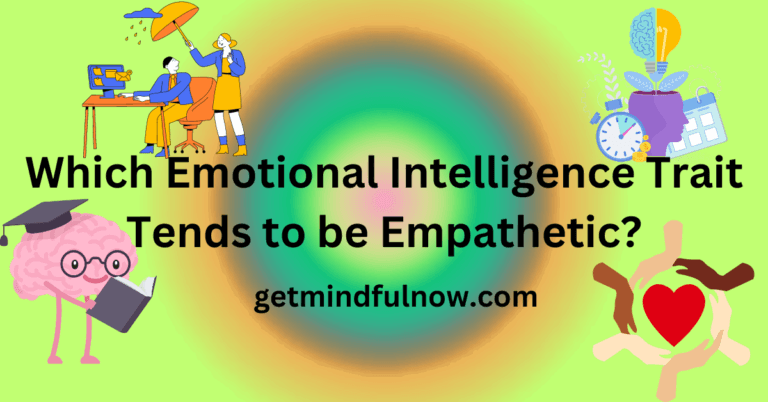







Wow Amazing Thanks
You’re Welcome.
I am such a fan of your work and it inspires me a lot. I love your blog Keep doing the best work.
Thank you for your valuable feedback. I appreciate your valuable thoughts.
You can also read other articles here, and I’d love to hear your thoughts on those.
We have to be very positive about our self to continue to our in life in a better way it comes by working hard and treat people in good way and learning to be an empathetic person.
Thank you Hashmat for your valuable feedback. I appreciate your insights on this post.
You can also read other articles here, and I’d love to hear your thoughts on those.
I was reading some of your blog posts on this internet site and I conceive this internet site is very instructive!
This post really helped clarify how empathy fits into emotional intelligence. I always thought of it as a standalone trait, but now I see how it’s intertwined with other aspects like emotional awareness. It’s encouraging to know that we can develop this skill. Thanks for sharing these insights.
Wow, this was such a clarifying read! I’ve always thought of empathy as something you’re either born with or not, but your breakdown of how emotional intelligence connects to empathy makes so much sense. It’s inspiring to think that we can actually cultivate this skill to improve our relationships and understanding of others!